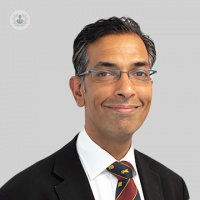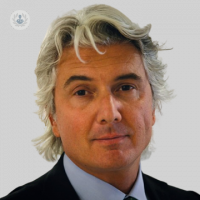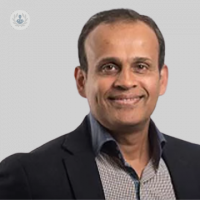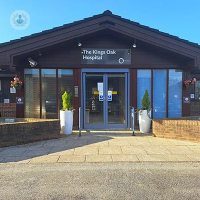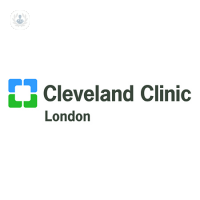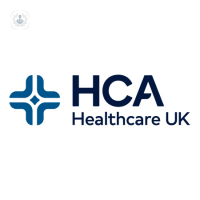What is a cholecystectomy?
Cholecystectomy is the surgical removal of the gallbladder as a treatment for gallstones or other gallbladder problems. The gallbladder is responsible for collecting and storing bile, which is a digestive fluid produced by the liver. The gallbladder is located below the liver on the right side of the abdomen.

Why is a cholecystectomy performed?
A cholecystectomy would be carried out most commonly to treat gallstones and the problems they can cause. Hence, the following problems can be treated by having a cholecystectomy:
- Gallstones in the gallbladder or bile duct
- Cholecystitis (inflammation of the gallbladder)
- Pancreatitis caused by gallstones
- Gallbladder polyps
Preparation for cholecystectomy
Before surgery, you will be advised on when to stop eating, and also if any medications need to be temporarily halted.
What does cholecystectomy consist of?
A cholecystectomy requires general anaesthesia. A cholecystectomy can be performed either laparoscopically (keyhole) or as open surgery.
Minimally-invasive laparoscopic cholecystectomy involves having several small incisions made on the abdomen. Through these, a small tube with a video camera is inserted into the abdomen through one of these incisions. The video camera is connected to a monitor in the operating room, which guides the surgeon during the procedure. Using tools inserted through the incisions in the abdomen, the gallbladder is removed. Once removed, the incisions are closed with sutures and you are moved to a recovery room. This surgery takes between one to two hours.
Open cholecystectomy involves the surgeon making a bigger (around 6 inches) incision on the abdomen on the right side, below the ribs. The gallbladder is removed through this incision, which is then closed with sutures after. This also takes between one to two hours.
Care after cholecystectomy
Following laparoscopic cholecystectomy, often patients can go home on the same day as their surgery, but sometimes a one night stay will be recommended. Full recovery is usually made within one week. After open surgery for gallbladder removal, patients will usually spend two to three days in the hospital to recover and be monitored. Once home, a full recovery will be made in four to six weeks.
05-26-2017 04-04-2023Cholecystectomy
What is a cholecystectomy?
Cholecystectomy is the surgical removal of the gallbladder as a treatment for gallstones or other gallbladder problems. The gallbladder is responsible for collecting and storing bile, which is a digestive fluid produced by the liver. The gallbladder is located below the liver on the right side of the abdomen.

Why is a cholecystectomy performed?
A cholecystectomy would be carried out most commonly to treat gallstones and the problems they can cause. Hence, the following problems can be treated by having a cholecystectomy:
- Gallstones in the gallbladder or bile duct
- Cholecystitis (inflammation of the gallbladder)
- Pancreatitis caused by gallstones
- Gallbladder polyps
Preparation for cholecystectomy
Before surgery, you will be advised on when to stop eating, and also if any medications need to be temporarily halted.
What does cholecystectomy consist of?
A cholecystectomy requires general anaesthesia. A cholecystectomy can be performed either laparoscopically (keyhole) or as open surgery.
Minimally-invasive laparoscopic cholecystectomy involves having several small incisions made on the abdomen. Through these, a small tube with a video camera is inserted into the abdomen through one of these incisions. The video camera is connected to a monitor in the operating room, which guides the surgeon during the procedure. Using tools inserted through the incisions in the abdomen, the gallbladder is removed. Once removed, the incisions are closed with sutures and you are moved to a recovery room. This surgery takes between one to two hours.
Open cholecystectomy involves the surgeon making a bigger (around 6 inches) incision on the abdomen on the right side, below the ribs. The gallbladder is removed through this incision, which is then closed with sutures after. This also takes between one to two hours.
Care after cholecystectomy
Following laparoscopic cholecystectomy, often patients can go home on the same day as their surgery, but sometimes a one night stay will be recommended. Full recovery is usually made within one week. After open surgery for gallbladder removal, patients will usually spend two to three days in the hospital to recover and be monitored. Once home, a full recovery will be made in four to six weeks.
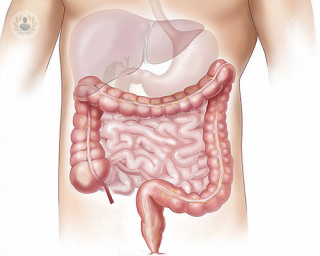

What are gallbladder polyps?
By Dr Charis Kyriakides
2024-12-21
Gallbladder polyps are growths that form on the inner lining of the gallbladder. Although most are benign, some gallbladder polyps may harbour malignancy. Here, Dr Charis Kyriakides, renowned consultant general and upper GI surgeon, offers his expert insight into gallbladder polyps. See more


Preparation for a cholecystectomy
By Mr Joseph Varghese
2024-12-20
A cholecystectomy is quite a common procedure and has only a small risk of complications, but it’s important to prepare properly to ensure it goes smoothly. Renowned consultant general surgeon, Mr Joseph Varghese, talks us through the cholecystectomy procedure by answering patients' frequently-asked-questions. See more
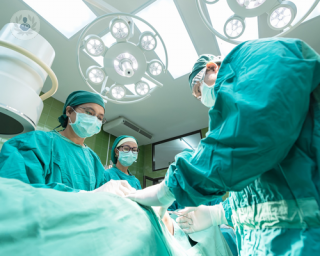

Life after gallbladder surgery: What to expect
By Mr Charles Imber
2024-12-20
Gallbladder surgery, or cholecystectomy, is commonly performed to treat gallstones or other gallbladder issues. After this surgery, most people experience relief from symptoms such as abdominal pain, nausea, and indigestion. However, adapting to life without a gallbladder involves understanding changes in digestion and making some dietary adjustments. See more
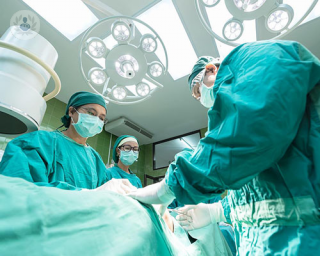

Cholecystectomy: Everything you need to know before the procedure
By Mr Nima Abbassi-Ghadi
2024-12-20
See more
Experts in Cholecystectomy
-
Mr Sakhawat (Zak) Rahman
SurgeryExpert in:
- Cholecystectomy
- Laparoscopic hernia surgery
- Pancreas surgery
- Inguinal hernia
- Hiatal hernia surgery
- Gallbladder surgery
-
Mr Andrew Wan
SurgeryExpert in:
- Obesity
- Bariatric surgery
- Gallstones
- Cholecystectomy
- Hernia
- Acid reflux
-
Professor Giuseppe Fusai
SurgeryExpert in:
- Liver cancer
- Pancreas surgery
- Pancreatitis
- Cholecystectomy
- Pancreatic cancer
- Metastasis
-
Mr Michael Stellakis
SurgeryExpert in:
- Laparoscopic hernia surgery
- Cholecystectomy
- Colonoscopy
- Irritable bowel syndrome (IBS)
- Hernia
- Gastroscopy
-
Mr Joseph Varghese
SurgeryExpert in:
- Cholecystectomy
- Hernia
- Endoscopy
- Colonoscopy
- Therapeutic endoscopic retrograde cholangiopancreatography (ERCP)
- Abdominal wall reconstruction
- See all

Kings Oak Hospital - part of Circle Health Group
Kings Oak Hospital - part of Circle Health Group
127 The Ridgeway, Enfield EN2 8JL
No existe teléfono en el centro.
By using the telephone number provided by TOP DOCTORS, you automatically agree to let us use your phone number for statistical and commercial purposes. For further information, read our Privacy Policy
Top Doctors

Cleveland Clinic London Rapid Access Gallbladder Unit
Cleveland Clinic London Rapid Access Gallbladder Unit
33 Grosvenor Place
No existe teléfono en el centro.
By using the telephone number provided by TOP DOCTORS, you automatically agree to let us use your phone number for statistical and commercial purposes. For further information, read our Privacy Policy
Top Doctors

The Princess Grace Hospital - part of HCA Healthcare
The Princess Grace Hospital - part of HCA Healthcare
The Princess Grace Hospital, 42-52 Nottingham Pl, W1U 5NY
No existe teléfono en el centro.
By using the telephone number provided by TOP DOCTORS, you automatically agree to let us use your phone number for statistical and commercial purposes. For further information, read our Privacy Policy
Top Doctors
-
Kings Oak Hospital - part of Circle Health Group
127 The Ridgeway, Enfield EN2 8JL, North LondonExpert in:
- Cancer
- Cardiology
- General Surgery
- Orthopaedic surgery
- Diagnostic Imaging
- Obstetrics and Gynaecology
-
Cleveland Clinic London Rapid Access Gallbladder Unit
33 Grosvenor Place, Central LondonExpert in:
- Blood test
- Minimal access surgery (keyhole surgery)
- Gallbladder surgery
- Robotic gallbladder surgery
- Diagnostic Imaging
- Ultrasound
-
The Princess Grace Hospital - part of HCA Healthcare
The Princess Grace Hospital, 42-52 Nottingham Pl, W1U 5NY, Central LondonExpert in:
- Cancer
- General Surgery
- Orthopaedic surgery
- Robotic Surgery
- Intensive care
- Sports Medicine
- See all
- Most viewed diseases, medical tests, and treatments
- Undescended testicle (Cryptorchidism)
- Weight loss injections
- Nipple discharge
- Abdominal pain
- Endovenous laser treatment (EVLA)
- Minimal access surgery (keyhole surgery)
- Head and neck cancer
- Neck lump
- Bariatric surgery
- Acellular dermal matrix (ADM)

